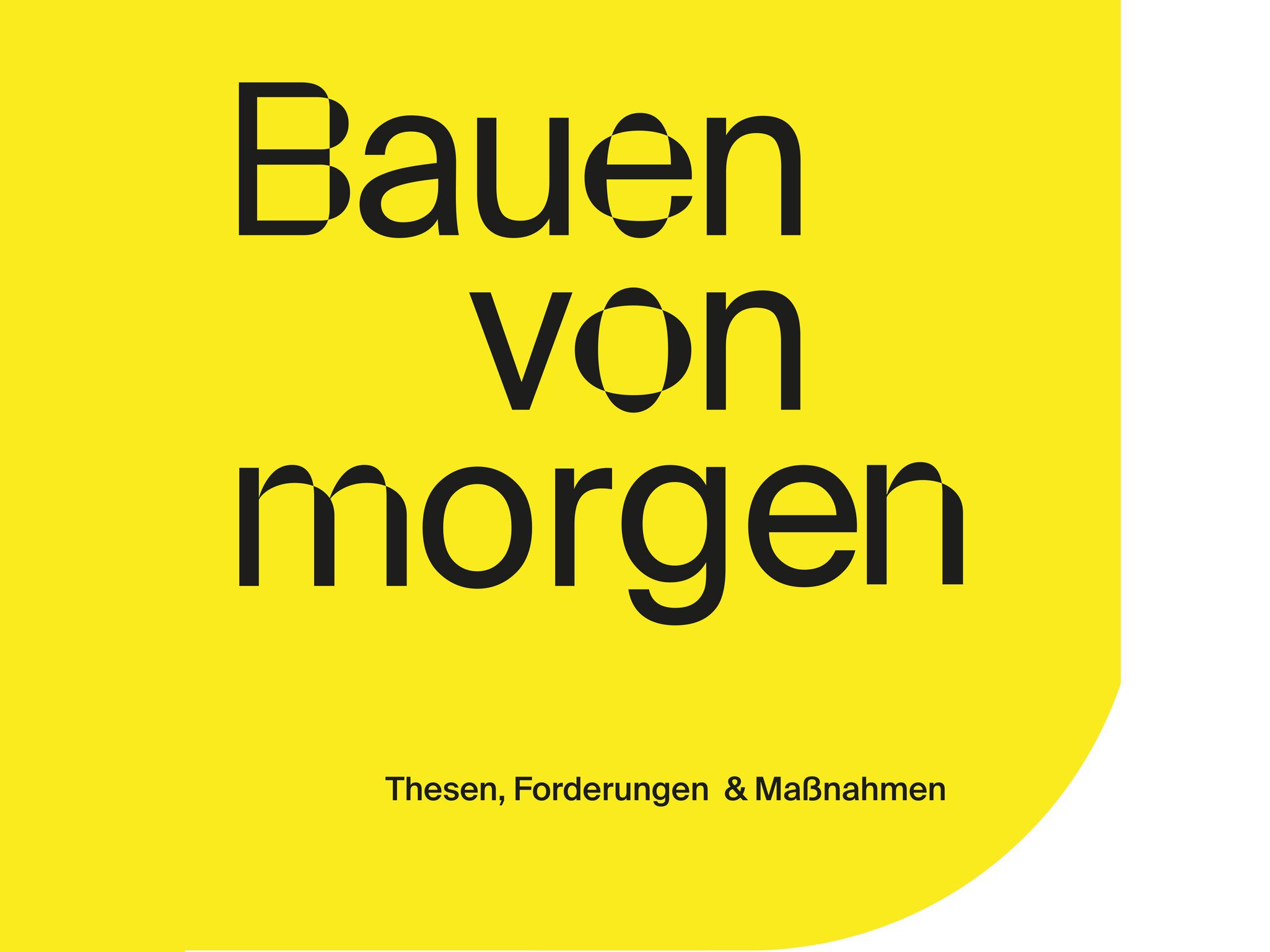Construction of tomorrow - theses, demands and measures
The construction of the future must change fundamentally in order to enable life within planetary boundaries. The current focus on increasing efficiency and technical innovations falls short, as monitoring data and the rebound effects of savings show. As the construction sector is responsible for around 40 % of global CO2 emissions and over 90 % of the extraction of non-renewable raw materials, a rethink is required.
This is where the ‘Construction of tomorrow’ format of the Federal Institute for Research on Building, Urban Affairs and Spatial Development (BBSR) comes in. In four future labs at various German universities, topics such as resilience, sufficiency, material and substance cycles, participation in the planning process and the transformation of existing buildings were discussed. Potentials, challenges and obstacles to implementation were analysed, including a critical examination of laws and standards as well as the question of responsibility.
On the basis of these future workshops, a paper with a total of 20 theses and associated demands and measures was produced. So what will tomorrow's construction look like at the turning point? What will a paradigm shift from increasing efficiency in all areas to sufficiency and holistic systemic considerations bring?
Four of the twenty theses are presented here as examples:
- Future lab 1: resilience, sufficiency & comfort
- Future lab 2: Material & material cycles
- Future lab 3: Participation in the planning & design process
- Future lab 4: Transformation of the existing building
The complete theses and further information on the research project can be found at www.zukunftbau.de.
Future lab 1: Resilience, sufficiency & comfort
The building of tomorrow means climate-friendly construction instead of building-friendly air conditioning’
The building of tomorrow must use robust, functional and constructive measures to ensure a stable indoor climate without excessive technology. Low-tech concepts offer an alternative to increasingly complex, high-maintenance and failure-prone technology and enable a more efficient use of resources. The return to climate-friendly construction methods that are adapted to the environment is central to this. Low tech does not mean rejecting technical systems, but rather using them sufficiently and appropriately to improve the ecological balance in the construction and operating phases. On the one hand, this can be achieved through dynamic planning tools that enable well-founded decisions and simplify planning processes. But it can also be achieved by decoupling the fee structure from the investment sums in MEP, adjusting the assessments in certification systems in favour of low-tech and new indicators or maximum permissible values for greenhouse gas potential / energy consumption per user.
Future lab 2: Material & material cycles
‘Material cycles start with integral planning processes in the construction of tomorrow’
Construction, supporting structure and technology integration are central aspects of circular building and require close integration in the planning process. These areas influence each other and can also contradict each other, which is why iterative processes in an interdisciplinary team are essential. An integral planning process includes a thorough basic investigation, particularly with regard to the availability of primary and secondary building materials and the trade-off between demolition and preservation. Precise tender criteria and clear objectives in the competition are essential for sustainable projects. The selection of planning teams through pre-qualification or workshop procedures is also crucial for success. An integral planning culture is based on cooperation at eye level and should be an integral part of the training of all disciplines and trades involved. This begins with the provision of precise and verifiable design-relevant data for competition submissions and ends with the mutual assumption of responsibility instead of a singular ‘debt to be discharged’ by individual disciplines.
Future lab 3: Participation in the planning and design process
‘The construction of tomorrow develops the standards of the future in experimental spaces’
In order to promote innovation in the construction sector, framework conditions must be created that facilitate and accelerate the implementation of research results in practice. It is not enough to promote lighthouse projects - innovations must be promoted and stabilised in everyday construction processes. Real-world laboratories, in which new findings can be implemented and evaluated on a 1:1 basis, are an effective means of achieving this. Concrete measures include the increased use of bio-based and recycled building materials as well as the development of new process and stakeholder models for sustainable construction processes. This requires the necessary methodological and legal framework conditions for innovative and experimental approaches in tenders and funding programmes, as well as the simplification of approval and warranty processes.
Future lab 4: Transformation of the existing building stock
‘The construction of tomorrow means building in existing buildings’
Preserving existing buildings must be established as a central construction task in order to reduce CO2 emissions and avoid the loss of resources through demolition and new construction. A paradigm shift towards a culture of justification for demolition and greater promotion of building conservation is necessary in order to sustainably transform the construction sector. Incentives such as realistic pricing of energy and resource consumption could make new construction less attractive than building in existing buildings. Moratoriums on approvals are just as conceivable in the future as a reduction in subsidy programmes for new builds.





